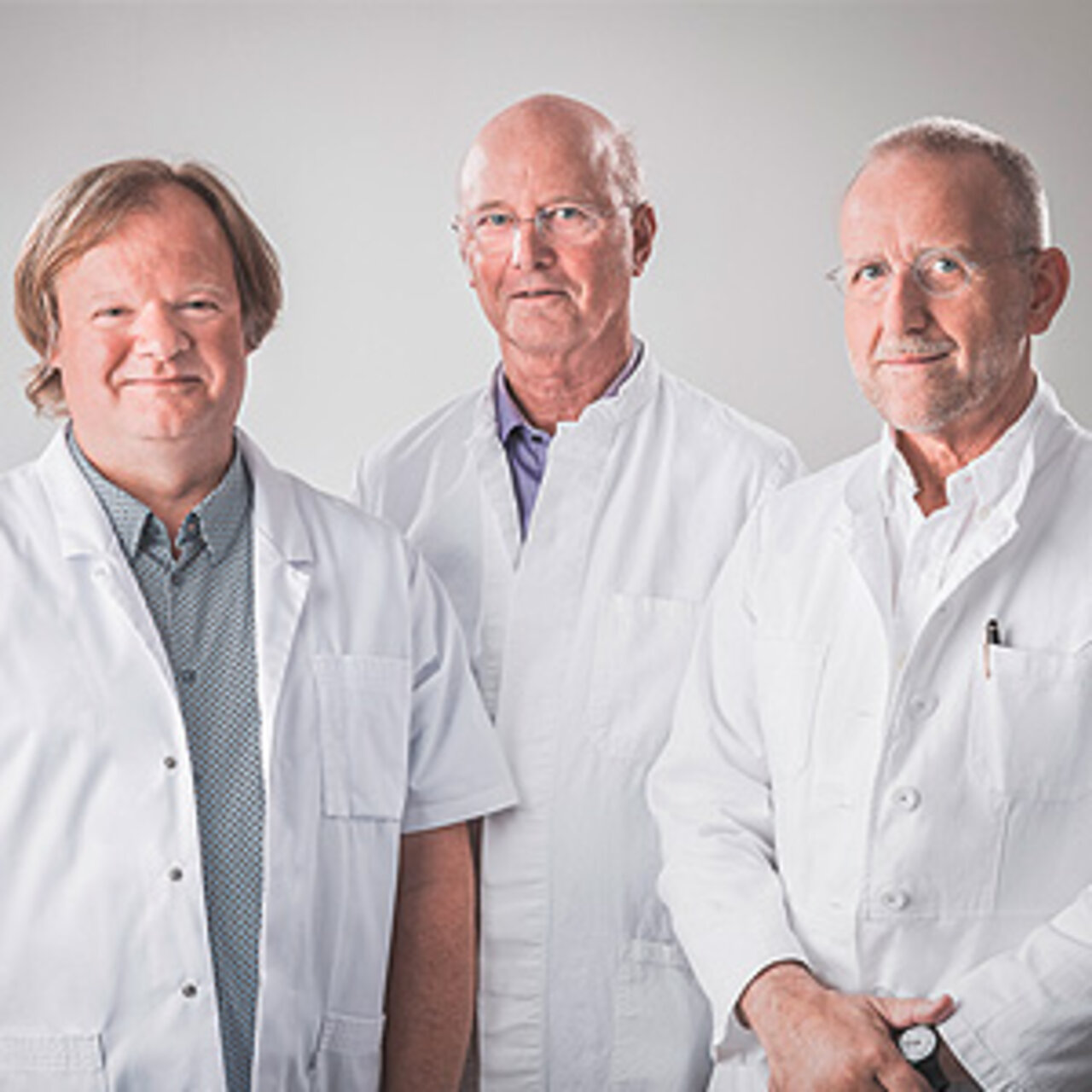Specialists in Gall bladder cancer
9 Specialists found
Information About the Field of Gall bladder cancer
Definition: What is gallbladder cancer?
The purpose of the gallbladder is the storage of bile produced by the liver (they are located close to one another anatomically). Several factors can contribute to the development of cancer in this area. The cancer ( or in medical terms carcinoma) is made up of "degenerated" cells. In other words, changes have taken place in the genetic information, allowing cancerous cells to divide uncontrollably and crowd out healthy tissue. Such a tumor is also termed "malignant". It can grow from the gallbladder into the adjacent liver tissue or even metastasize via the blood circulation or the lymphatic system. If this happens, cancer cells of the gallbladder start to grow and destroy other organs. Carcinomas of the gallbladder develop relatively rarely.
Causes: Why do gallbladder tumors develop?
Several risk factors for the development of cancer are known. In case of the gallbladder, among them are chronic inflammation (cholecystitis), that is often linked to gallstones, as well as recent salmonella infections, that lead to permanent excretion of bacteria. Persistent irritation of the cells of the gallbladder can produce changes in the genetic material, which in turn can lead to cancer.
Symptoms of gallbladder cancer
Symptoms frequently develop very late in the course of gallbladder cancer. This is why the disease is mostly detected at a very advanced stage and patients are confronted with a poorer prognosis.
Common symptoms include diffuse upper abdominal discomfort and jaundice (icterus) which refers to a yellowish discoloration of the skin and eyeballs. It happens if the outflow of bile is blocked by the carcinoma. As a result, feces may become discolored and greasy, urine may have a brownish appearance and patients may experience itching.
In very advanced stages, general symptoms such as weight loss, night sweats and fatigue may arise.
How are tumors of the gallbladder diagnosed and treated?
Any suspicion of gallbladder cancer may be based on the symptoms mentioned above, along with a physical examination and a blood test.
Following this, the first step is an ultrasound examination. Should the findings be suspicious for gallbladder cancer, a further CT (computed tomography) or MRI (magnetic resonance imaging) examination may be needed to assess the extent of the carcinoma.
Definitive confirmation can often only be achieved by directly examining the gallbladder cells after its removal (cholecystectomy). At the same time, this is the most important treatment modality. Systemic chemotherapy may possibly be indicated as well. However, cancer has often already spread so extensively in the body that cure is no longer possible. In this case, "palliative" steps are taken. This means that the primary goal is to ease the symptoms and maintain the quality of life as much as possible.
Life expectancy of gallbladder cancer
It is not possible to provide a general prediction of life expectancy of gallbladder cancer, since the prognosis depends greatly on the spread and aggressive character of the tumor. Due to the often very late discovery of the tumor, however, prognosis is generally poor.
Which doctors and clinics specialize in gallbladder cancer?
Most of the time, gastroenterologists diagnose gallbladder cancer and then gastroenterologists or visceral surgeons perform the surgery. In Germany, a number of specialized centers for gallbladder cancer exist, which provide qualified treatment planning and therapy.
Sources:
- mediscript Gastroenterologie; Elsevier, Urban&Fischer; 2. Auflage
- www.krebsgesellschaft.de/onko-internetportal/basis-informationen-krebs/krebsarten/andere-krebsarten/gallenblasenkrebs/ursachen-und-risikofaktoren.html







